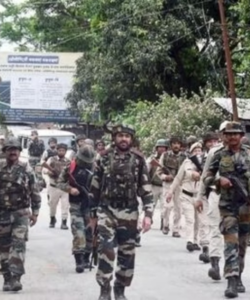Modi Commemorates Iconic Speeches of Nehru and Vajpayee, Emphasizing Their Timeless Inspiration
Prime Minister Narendra Modi, on Monday, invoked the memorable speeches of his predecessors, Jawaharlal Nehru and Atal Bihari Vajpayee, underscoring their enduring influence on lawmakers.
“In the annals of parliamentary history, Pandit Nehru’s ‘at stroke of midnight’ oration and Atal Bihari Vajpayee’s assertion, ‘sarkaare aayengi-jayengi, lekin desh rehna chahiye’ (governments will come and go, but the country should endure), will resonate within these hallowed Parliament walls for eternity,” Modi proclaimed as he initiated a discussion in the Lok Sabha on the occasion of Parliament’s 75th year. This momentous session convened on the first day of a five-day special gathering.
The iconic “a tryst with destiny” speech was delivered by Nehru at the stroke of midnight on August 15, 1947, marking the transfer of power from the British colonial rule to an independent India. Nehru fervently called upon the people of India, on the dawn of their newfound freedom, “to labor and to work, and work hard, to give reality to our dreams. Those dreams are for India but they are also for the world.”
Modi’s reference to Nehru and his historic speech holds significant weight, given the Congress party’s allegations that the ruling Bharatiya Janata Party (BJP) has been diluting the legacy of India’s first Prime Minister and his vision of a secular, inclusive nation.
Modi further hailed the venerable Parliament building, which has borne witness to the making of history. He described it as the embodiment of India’s soul and democracy, evoking memories of the remarkable speeches delivered within its walls by both Nehru and Vajpayee.
The special parliamentary session commenced in the current building on Monday, set to transition to the new House complex the following day.
In addition, Modi lauded the journalists who have covered Parliament over the years. “As we bid farewell to this hallowed House, I wish to pay tribute to our media friends who have played an integral role in covering Parliament. They diligently reported the minutiae of parliamentary proceedings at a time when modern technology did not offer the conveniences of today. They not only conveyed the news but delved into the tiniest intricacies of parliamentary affairs and shared them with the public.”




